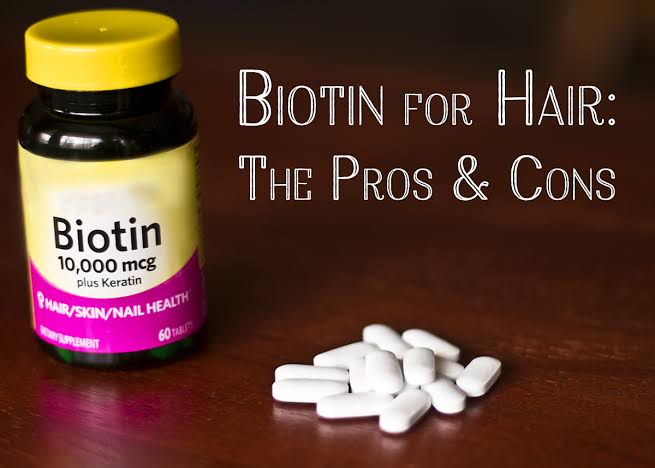
Biotin, also known as vitamin B7, is a water-soluble vitamin that plays an essential role in converting food into energy. It’s also often marketed as a supplement for healthy hair, skin, and nails. While biotin is generally considered safe, especially since it’s found naturally in many foods, taking high doses in supplement form can sometimes cause side effects.
Common Side Effects of Biotin
Although rare, some people may experience the following:
Skin Reactions
High doses of biotin can sometimes cause acne breakouts or skin rashes, especially around the face and jawline
Digestive Issues
Some users report nausea, cramping, or diarrhea when taking large amounts of biotin.
Interactions with Lab Tests
One of the most serious concerns is that biotin can interfere with blood test results, particularly thyroid tests, vitamin D, and even heart-related tests. This can lead to false results and misdiagnosis if your doctor isn’t aware you’re supplementing.
Possible Kidney Stress
Very high doses may put extra strain on the kidneys, especially in individuals with preexisting kidney conditions
Who Should Be Cautious?
People taking high-dose supplements (5,000–10,000 mcg daily) for hair growth.
Those with kidney issues or other chronic conditions.
Anyone scheduled for lab work—always inform your doctor if you’re taking biotin
How Much Biotin Do You Really Need?
The recommended daily intake (RDI) for biotin is:
Adults: about 30 mcg per day
Pregnant women: about 30 mcg per day
Breastfeeding women: about 35 mcg per day
Most people already get enough biotin from foods like eggs, nuts, seeds, and whole grains—so supplements aren’t always necessary
Biotin is safe for most people when taken in moderate amounts, but mega-doses can lead to side effects and interfere with important lab tests. If you’re considering supplements, talk with your doctor—especially if you’re on medication or have upcoming medical tests.
✨ Your hair, skin, and nails may thank you, but so will your health when you use it wisely







